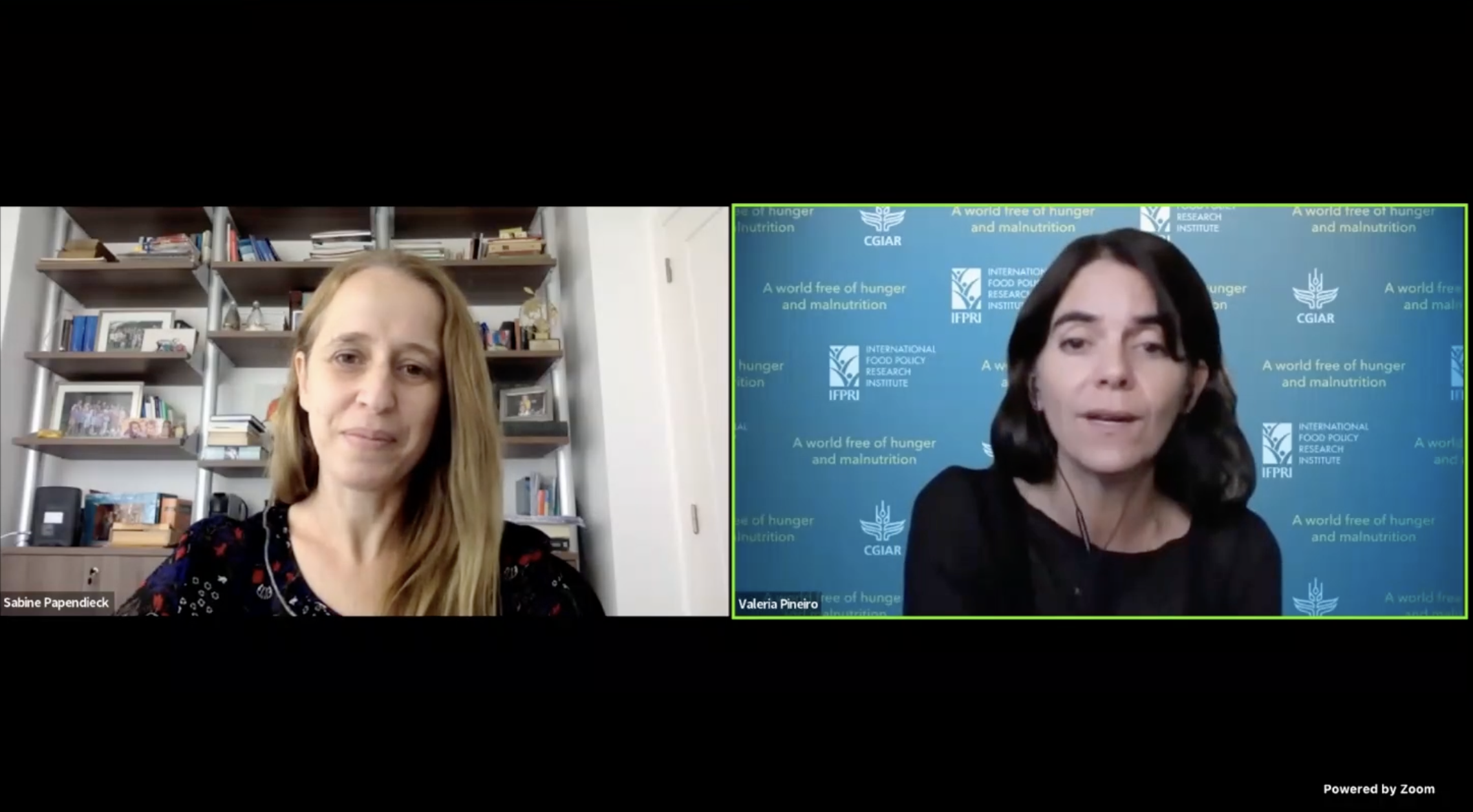Translation option:
With the COP27 global climate conference now underway through November 18 in Sharm El-Sheikh, Egypt, what are the prospects for transforming agriculture in the Americas to better contend with climate change?
This was the theme of an October 27 policy seminar, “Agriculture in the Americas on the path to COP27: challenges and opportunities for public policy.” The event was organized by IFPRI in collaboration with the Inter-American Institute for Cooperation on Agriculture (IICA) and the U.S. Agency for International Development (USAID).
Greenhouse gas (GHG) emissions from agriculture have remained relatively steady over the last 30 years, accounting for between 15%-20% of the total. Globally, agricultural activities released for 11 billion metric tons of carbon dioxide equivalent in 2019, according to FAO data. Asia, Oceania, and Latin America present the highest GHG emissions in absolute terms. In an analysis of emissions by country, Brazil, Indonesia, and China accounted for over 50% of global emissions from agriculture, said Valeria Piñeiro, Acting Head of the Latin America and Caribbean Region and Senior Research Coordinator at IFPRI.
As climate impacts intensify, agriculture in Latin America will see more extreme temperatures, stresses on water sources, and economic volatility. Thus it is necessary to increase the sector’s resilience, improve monitoring, better prioritize investments, and design more efficient policies and incentives, Piñeiro said.
Federico Villarreal, IICA Director of Technical Cooperation, said that COP27’s treatment of agriculture is highly significant for the Americas, hence a number of activities were organized in the months leading up to the conference:
- Meeting of the Americas on Climate Change and Agriculture (May 2022). Methods were considered to jointly address the urgent need to transform the agricultural sector in response to climate change.
- 9th Summit of the Americas (June 2022). Countries and their Ministers of Agriculture agreed on the need to amplify the voice of agriculture in the Americas at climate-related events, especially COP27.
- Africa-Americas Ministerial Summit (July 2022). A meeting held to strengthen cooperation between the two continents to promote mutual learning and transform agrifood systems.
- Inter-American Board of Agriculture (IABA) (July 2022). A resolution was passed outlining the process to give agriculture in the Americas a voice and presence at COP27.
Agriculture in the Americas has a pavilion at COP27 called the “House of Sustainable Agriculture of the Americas” with the slogan “Feeding the world, nurturing the planet,” to transmit a very powerful message about the importance of this sector in both the political and technical spheres.
Over 60 specialized events are being held in the pavilion in the following areas: political advocacy; food security and resilience; farmers’ voices in the face of crisis, catalyzing financing; markets and innovation to support transition; and meat, milk, and climate change.
Panelists outlined some of the main challenges for agrifood systems in the region due to the climate crisis, including:
- Mitigation: As agrifood sector actors participate in the generation of emissions, they must work to reduce and prevent them.
- Adaptation: Given the current need to produce more, without forgetting that agricultural production is highly vulnerable to climate change.
- A new generation of policies that incorporate climate action in an integrated way.
- Financing: Striking a balance in the region between greater production and better environmental performance and development. This requires innovative financing for the farming system.
Here are some of the specific challenges and possible options for access to financing that panelists outlined:
- Skepticism: The belief that a true change in agriculture is impossible. The challenge is to show that agriculture can be resilient.
- Skewed or wrong perceptions: Many believe that mitigation measures make farming more expensive; rather, failing to adapt agriculture to climate change is costlier and leads to severe consequences.
- Complicated access to funding for farmers.
- Change funding approaches to show that the agriculture sector can handle financial resources in an orderly fashion.
- Take better advantage of the ecosystem of financing sources and the commitment to this that emerged from COP26 in Glasgow.
- Help farmers access funding quickly and simply.
In the context of the new vision, climate change is an issue tied to development that affects all ministries, and in which local governments and the private sector play an essential role in the Latin American and Caribbean region. To broaden the agenda on climate action, it is important to work in coordination at national, regional, and international levels.
National policies are also crucial. This requires a better organization of the climate agenda, so that agriculture can demonstrate its proactiveness and interest in contributing to the resolution of structural challenges.
Adriana Campos is a Senior Trade Specialist with IICA’s Directorate of Technical Cooperation; Valeria Piñeiro is Acting Head of IFPRI’s Latin America Region and a Senior Research Coordinator; Daniela Soto has a degree in international relations and is currently studying for a law degree.







